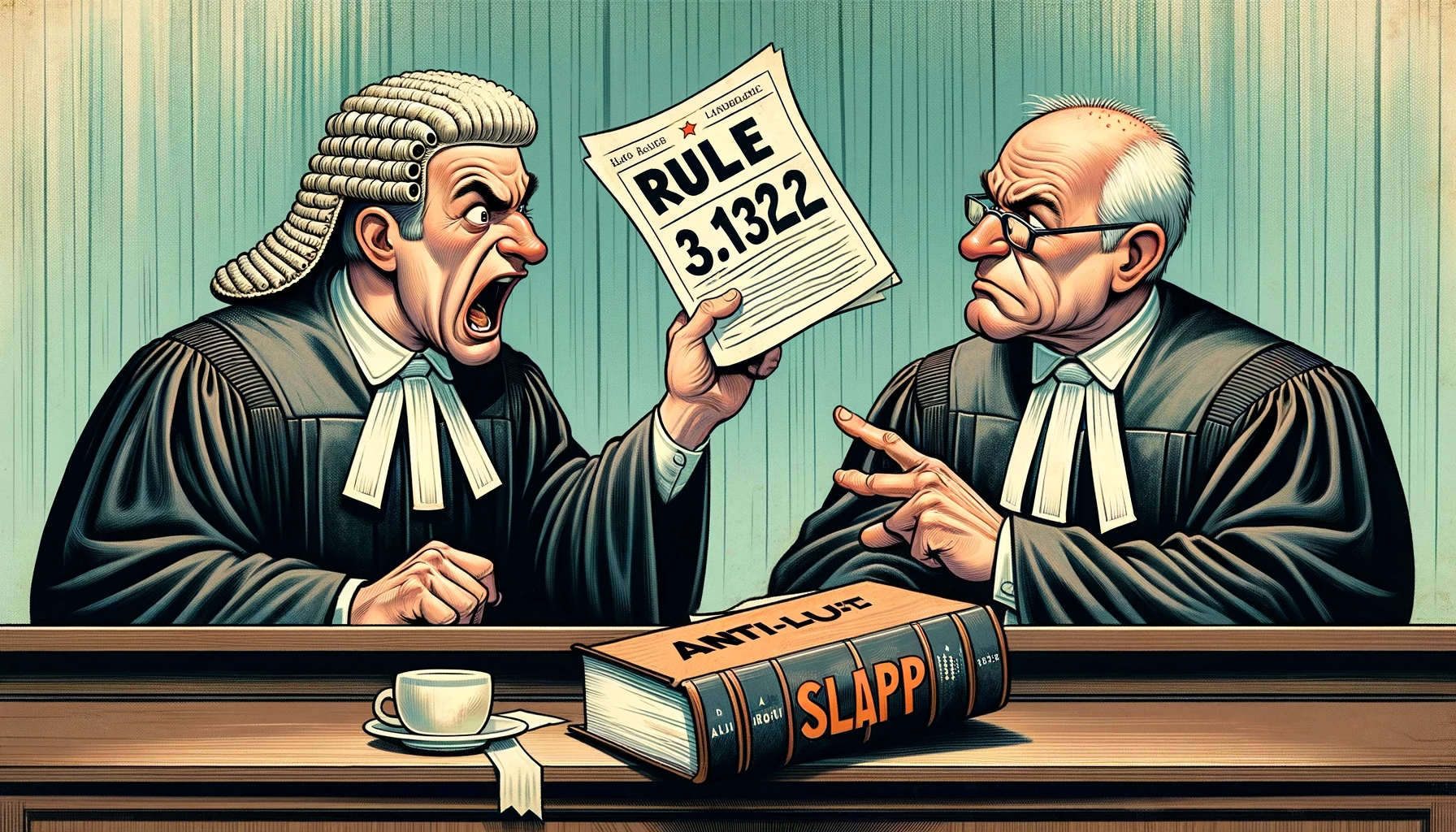
An anti-SLAPP motion is a species of motion to strike. So some authorities have held that this means California Rules of Court, rule 3.1322 applies, requiring that the challenged allegations be quoted chapter and verse. (Chop Won Park v. Nazari (D2d5 Jul. 25, 2023 No. B320483).)
But District Three disagreed in the published portion of its opinion in Miszkewycz v. County of Placer (D3 Jan. 25, 2024 No. C095426). A deputy district attorney filed a whistleblower complaint. She was demoted after making an ethics complaint about a text the acting D.A. received from a supervisor’s wife. The plaintiff believed the text contained an implied quid pro quo. The County filed an anti-SLAPP motion contending that the demotion was part of an official proceeding.
The trial court denied the County’s anti-SLAPP motion because the County failed to quote verbatim the allegations subject to the special motion.
The Court of Appeal disagreed. True, rule 3.1322 applies to motions to strike. But an anti-SLAPP motion, although labeled a special motion to strike, really applies only to claims, not to standalone allegations. Besides, the time limits under rule 3.1322 obviously don’t apply to anti-SLAPP motions, as anti-SLAPP motions deadlines are governed by their own statute. The Legislature, then, when drafting the anti-SLAPP statute, pretty clearly did not have rule 3.1322 in mind.
But the court went on to reject the County’s anti-SLAPP motion on prong one.
Although the Third District holds here that rule 3.1322 does not apply to require that anti-SLAPP motions specifically enumerate the challenged allegations, the Second District in Chop Won Park v. Nazari (D2d5 Jul. 25, 2023 No. B320483) stands for the opposite.
Park v. Nazari said that the moving party needs to identify “in the initial motion, each numbered paragraph or sentence in the complaint that comprises a challenged claim.” As Michael Shipley puts it, “Park essentially required the moving party to follow Rule of Court 3.1322, which demands that the notice of motion for a traditional motion to strike needs to identify, line by line and word by word, the precise material the movant wants stricken.”
Clip and save these authorities. At least one of them may be helpful if this issue comes up in your next case. In light of the conflict in authority, a trial court may "exercise discretion under Auto Equity Sales, Inc. v. Superior Court (1962) 57 Cal.2d 450, 456, to choose between sides of any such conflict.”